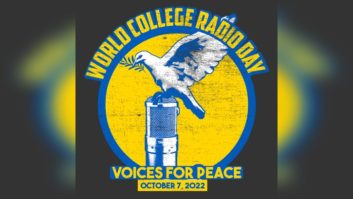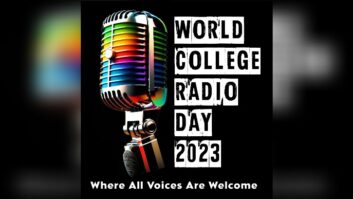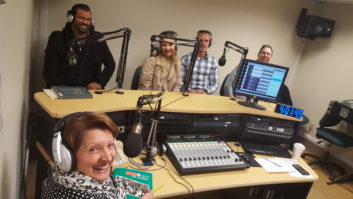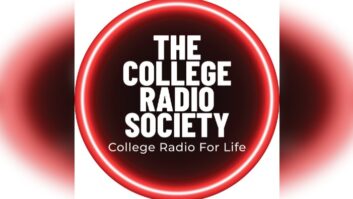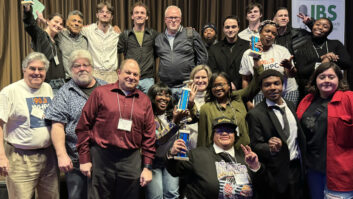The authors are general managers of KTRU(FM) and KTXT(FM), respectively. College Broadcasters Inc. commentaries are featured regularly at radioworld.com.

Despite being left for dead, two college radio stations in Texas are back on the airwaves and thriving.
KTRU was launched in 1967 as an experiment by engineering students as an AM carrier current station and eventually became a 50,000 watt station in Houston, licensed to Rice University and operated by its students. In August of 2010, it was revealed that Rice had entered into an agreement to sell the KTRU license and transmission facilities to the University of Houston System for almost $10 million. Despite protests and a legal challenge, the sale closed with the FCC in late April of 2011.
Though it lost its analog FM signal, KTRU continued to exist in other formats. It had been webcasting since late 1998, landed a spot on both the TuneIn and iHeartRadio apps, had its own app and came to a programming agreement with another station to be carried on the their HD2 channel. The efforts to reach an even larger audience did not stop there. The KTRU staff continued to search for a means to return to the analog dial and eventually filed an application in the LPFM window. KTRU returned to the airwaves on 96.1 MHz on Oct. 2 of this year.
The great publicity concerning the return of KTRU made people who thought the station was gone realize that it was still there and available again on their radio but also via its app, TuneIn and iHeartRadio. The online streaming numbers for October actually rose dramatically.
Separately, in December of 2008, KTXT, the student station at Texas Tech in Lubbock, Texas, had abruptly shut down. But the seeds for its reemergence had been planted much earlier.
The station was actually saved by a decision made 20 years earlier. When the local community was clamoring for an NPR station in the late 1980s, Dr. Clive Kinghorn, faculty director of KTXT at the time, managed to obtain a separate license for a classical music/NPR station at Texas Tech. He wanted to keep KTXT as a student station, so he secured a second FM license from the local school district, which was surrendering theirs back to the FCC. That second station would become KOHM(FM) and, in an ironic twist, actually help save KTXT 20 years later.
Several factors led to KTXT’s eventual return. The decision to shut the station down was made at the departmental level, not by the university administration. Texas Tech already had an NPR station, and there was no potential buyer waiting in the wings. The student newspaper ran the station and, while it was their decision alone to shut it down, the university administration then had to decide what to do with it.
Derrick Ginter, co-author of this article, was GM of KOHM at the time, and was asked if he would take it over. He agreed, but couldn’t keep it as a student FM since there was no studio space, no music library or budget for it. He knew that the university budgets were cyclical, and if he could just keep the station on-air and legal long enough, there would be resources for it to be a student FM again. So he automated the station with BBC and satellite jazz programming which was already on hand, and thus KOHM saved KTXT from disappearing.
But he didn’t have to wait very long. In 2010, the dean of the College of Mass Communications, Dr. Jerry Hudson, pitched the idea of moving KTXT back into the school where it started. Ginter happily agreed. Hudson offered him a job in 2011 to restore KTXT as a student FM, and to design new studios for it. Students returned to the airwaves that fall and, in late 2012, both the college and the station moved into a renovated campus space featuring state-of-the-art facilities.
Support for the station’s return has been crucial to its success. The station has made excellent use in promoting itself with College Radio Day, a national effort to bring more awareness to the importance of college radio. For CRD 2014, KTXT collected canned food from students in exchange for free movie tickets to a local theater, and used the day to promote the ideals of college radio. The students’ efforts won KTXT the Spirit of College Radio Day Award in December of 2014.
Is college radio still important in the 21st century? Yes very much so. Just ask our students.





